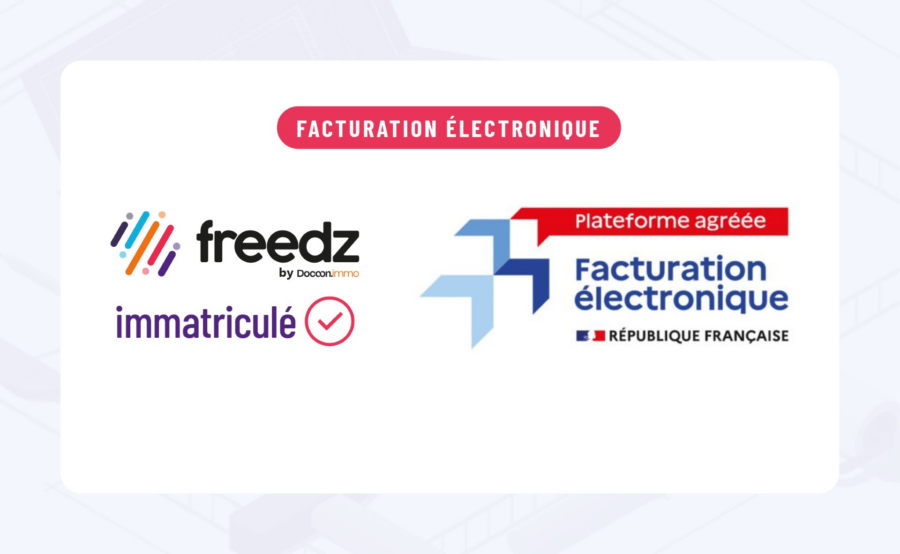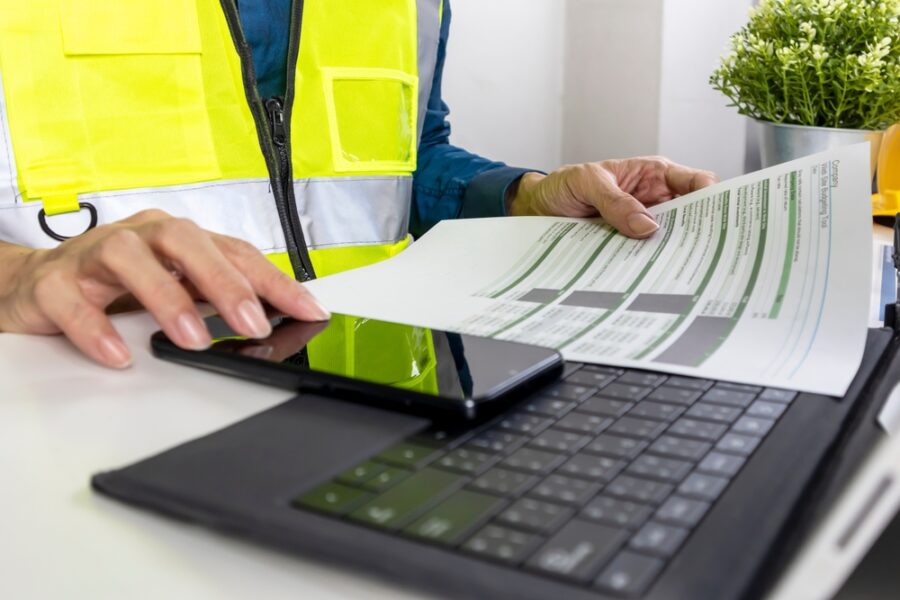Accounting

Freedz, la plateforme des acteurs de l’immobilier & du bâtiment définitivement immatriculée par la DGFiP
Freedz, la plateforme des acteurs de l’immobilier & du bâtiment définitivement immatriculée par la DGFiP La DGFiP a confirmé l’immatriculation définitive de Freedz, la plateforme dédiée aux acteurs de l’immobilier propulsée par Docoon.immo. Les tests réglementaires requis ont été franchis : échanges interplateformes, connexion à l’Annuaire et transmission des données au concentrateur DGFiP. Pour les […]
To know more about it
Freedz : la Plateforme Agréée qui aligne les objectifs du DAF, du DSI, & de la Comptabilité Fournisseurs
Freedz : la Plateforme Agréée qui aligne les objectifs du DAF, du DSI, & de la Comptabilité Fournisseurs Septembre 2026 approche à grands pas. Cette échéance marque l’entrée en vigueur de l’obligation de réception des factures électroniques pour toutes les entreprises françaises. 3 acteurs clés de l’entreprise doivent unir leurs forces : le Directeur Administratif […]
To know more about it
Freedz, la solution de validation des factures fournisseurs pour les acteurs de l’immobilier
Freedz, la solution de validation des factures fournisseurs pour les acteurs de l’immobilier Entre délais de paiement, contrôles de conformité et risques de pertes de documents, la gestion manuelle des factures fournisseurs devient un véritable casse-tête pour les professionnels de l’immobilier et du bâtiment. Et que faire quand le volume de factures entrantes explose à […]
To know more about it
Réforme 2026, nouvelles fonctionnalités : le Club Utilisateurs Freedz prépare demain
Réforme 2026, nouvelles fonctionnalités : le Club Utilisateurs Freedz prépare demain Dans un secteur de l’immobilier social et du bâtiment en pleine mutation réglementaire, les entreprises font face à des défis croissants : digitalisation des processus, conformité aux nouvelles obligations légales, optimisation des flux comptables. Face à ces enjeux, Docoon.immo (1) (anciennement Neovacom) a organisé le […]
To know more about it
Transition énergétique : comment les bailleurs sociaux pilotent leurs dépenses et leur performance grâce à la dématérialisation
Transition énergétique : comment les bailleurs sociaux pilotent leurs dépenses et leur performance grâce à la dématérialisation La transition énergétique est au cœur des préoccupations des bailleurs sociaux, confrontés à une triple exigence : rénover leur parc immobilier, construire des bâtiments bas carbone et maîtriser les charges locatives. Si la rénovation énergétique et la construction durable sont […]
To know more about it
Attendre pour se mettre en conformité avec la réforme de la facturation électronique : pourquoi ce n’est pas la bonne stratégie ?
Attendre pour se mettre en conformité avec la réforme de la facturation électronique : pourquoi ce n’est pas la bonne stratégie ? La réforme de la facturation électronique, prévue pour entrer pleinement en vigueur dès septembre 2026, s’impose comme un véritable tournant pour tous les acteurs économiques français. Pour les bailleurs sociaux et les promoteurs […]
To know more about it
Acteurs de l’immobilier et du bâtiment : pourquoi passer par la PDP Freedz ?
Acteurs de l'immobilier et du bâtiment : pourquoi passer par la PA Freedz ? Dans le secteur de l’immobilier et du bâtiment en pleine digitalisation, la gestion efficace et conforme des factures devient un enjeu majeur. La Plateforme Agréée (ex PDP) Freedz s’impose comme une solution dédiée, taillée sur mesure pour répondre aux spécificités de […]
To know more about it
Bailleurs sociaux : simplifiez enfin la gestion des appels de fonds avec Freedz !
Bailleurs sociaux : simplifiez enfin la gestion des appels de fonds avec Freedz ! Pour gérer les appels de fonds, un bailleur social doit faire face à plusieurs difficultés comptables. Parce qu’il est confronté à des syndics qui n’appliquent pas les mêmes procédures, délais et formats, et qu’il peut être amené à jouer lui-même le […]
To know more about it
10 questions clés pour comprendre les appels de fonds en copropriété
10 questions clés pour comprendre les appels de fonds en copropriété Dans le monde de la copropriété, les appels de fonds jouent un rôle crucial, puisqu’ils assurent le bon fonctionnement et la pérennité d’un immeuble ou d’un lotissement. Ces contributions financières régulières permettent de couvrir les dépenses courantes, d’anticiper les travaux d’entretien et de faire […]
To know more about it
PDP Immobilière : la solution sur mesure pour la gestion comptable des Bailleurs Sociaux
PA Immobilière : la solution sur mesure pour la gestion comptable des Bailleurs Sociaux Les bailleurs sociaux font face à des défis complexes dans la gestion simultanée des factures clients et fournisseurs, une tâche qui s’avère cruciale pour leur stabilité financière et opérationnelle. Cette double gestion, à la fois des revenus locatifs et des dépenses […]
To know more about it
What are the challenges facing CFOs in 2025?
What are the challenges facing CFOs in 2025? What are the challenges facing CFOs in 2025? What issues will become increasingly important in the coming years? In 2025, Administrative and Financial Departments (DAF) will be operating in a complex environment marked by political uncertainty, [...].
To know more about it
Collected VAT: what do I need to know?
As a major source of government revenue, VAT must be properly managed to comply with regulations and avoid financial penalties, enabling businesses to maintain competitive prices while ensuring profitability. Playing a key role in the traceability and transparency of commercial transactions, collected VAT obliges companies to maintain accurate records of their sales and purchases, to facilitate any tax audit.
To know more about it